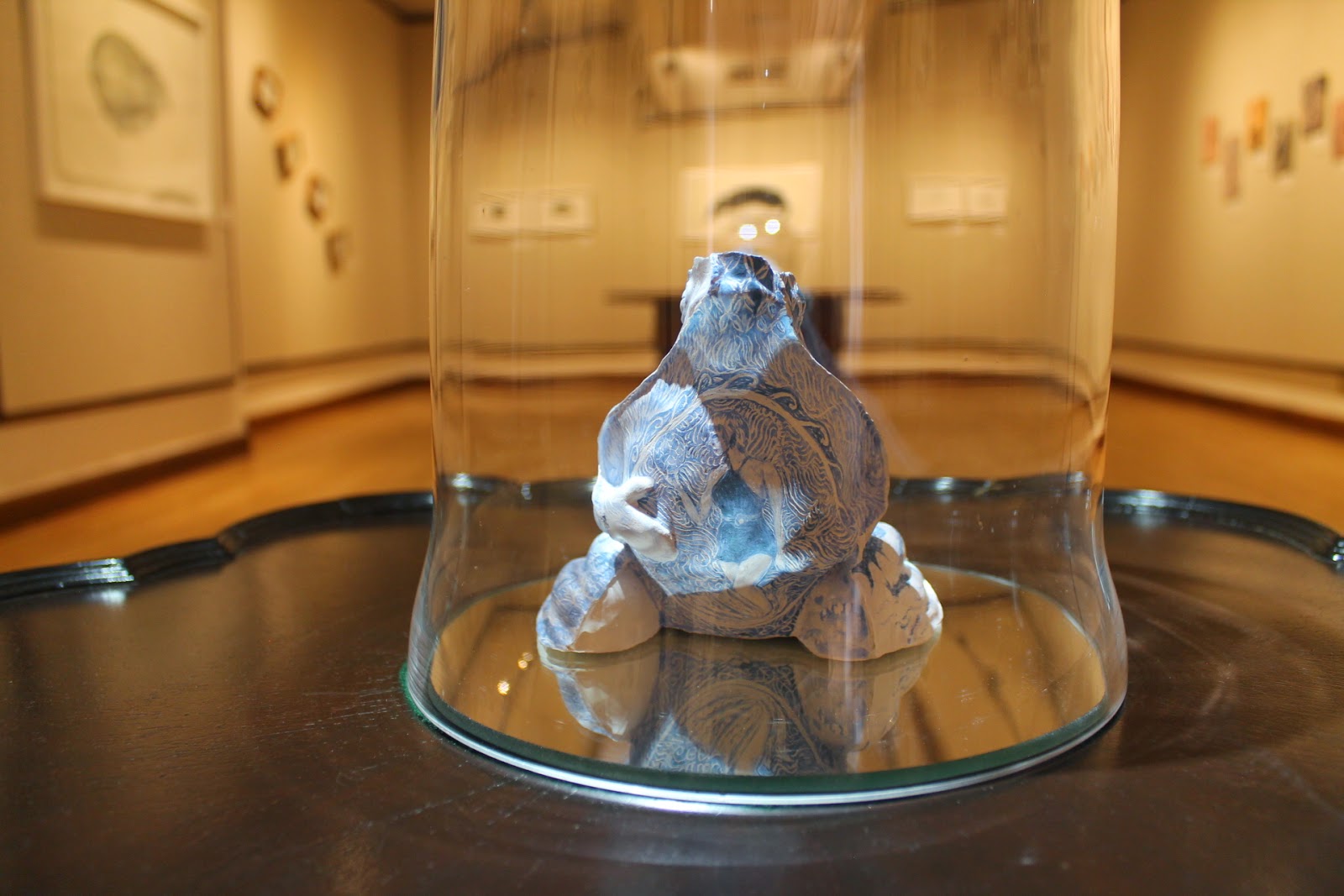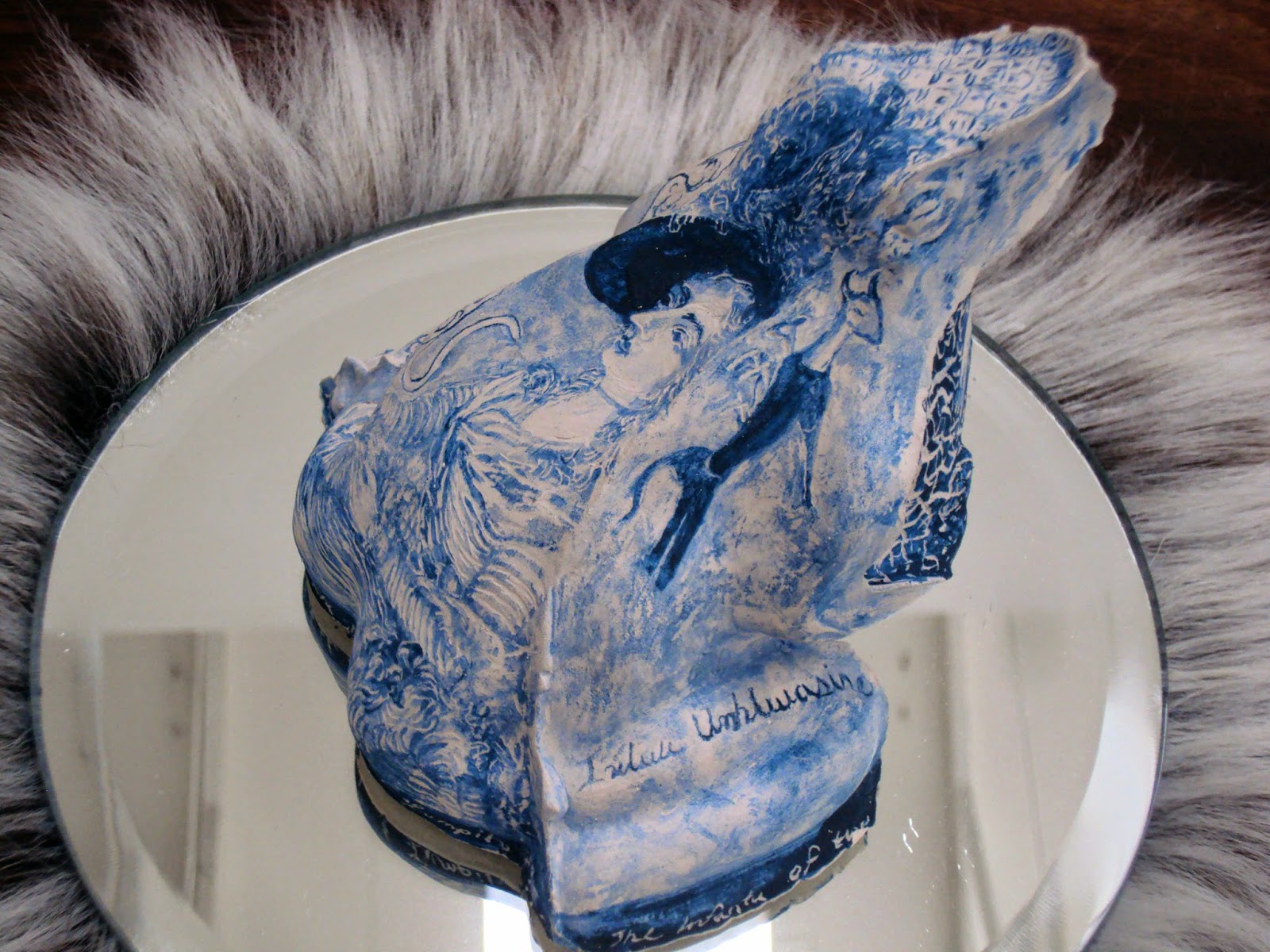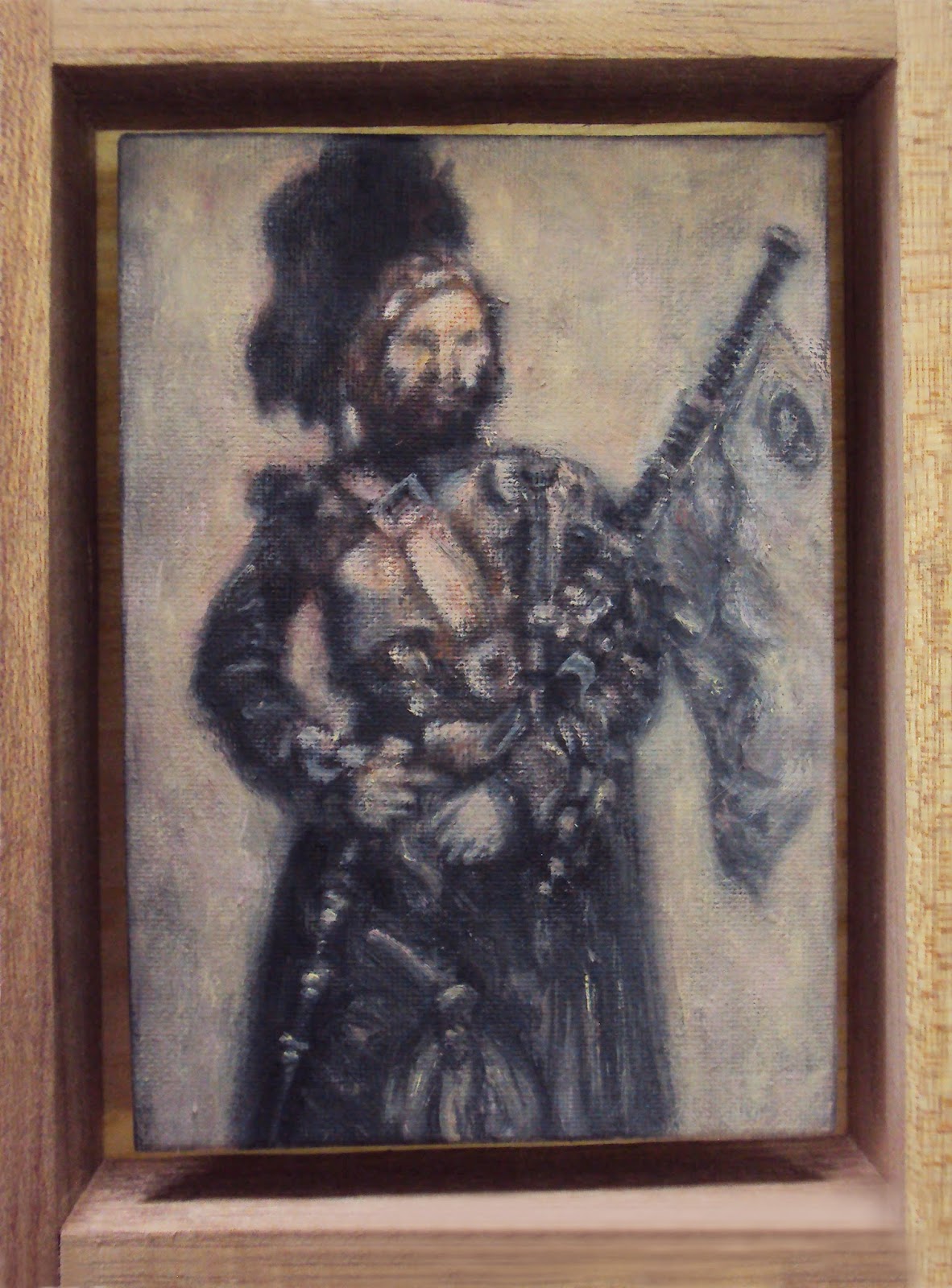Ann-Marie Tully’s art is concerned with the lives of animals, the reciprocal
relations of humans and non-humans, and the representation of animal beings.
The tendency of human beings to express themselves through the metaphoric and
physical vehicle of animal beings is critically considered in this visual body
of work including oil paintings, textiles and ceramics.
The Exhibition, Wolf in Sheeps Clothing, debuted at NIROXprojects, Arts
on Main, Johannesburg, in June 2013; travelled to the North West University
Botanical Garden Gallery in March 2014; and is culminating in an exhibition at
the Oliewenhuis Museum in Bloemfontein in February 2015.
A percentage of the
sale of artworks goes to the Society for Animals in Distress.
Transcription
of Gordon Froud’s opening address to ‘Wolf in sheep’s clothing’ at the
Oliewenhuis Museum, Bloemfontein | 19:00 | 05 February 2015:
Ann-Marie
Tully’s solo exhibition Wolf in sheep’s clothing addresses the animal in many guises, as form, subject, object, and metaphor.
The
artist employs animal related terminology as starting points and ironic titles
in her work: ‘Wolf in sheep’s clothing’, ‘Dog-eat-dog’, ‘Mugshot and shadow’ (alter egos).
Tully
employs a variety of expression: sculptural, ceramic, painting, drawing and
monotyping — testament to a highly skilled and cerebral artist. This artist’s work engages with the role of
the animal, and the ethics behind our interactions, be it as companion,
currency, or even product — seeking to elevate the status of the animal and
remind us of our duty towards them, while seeing
ourselves in them
Tully’s works engage with
humour, social commentary from the everyday mundane to images of war, and
significant events of the 20th century. Also in reference to
mythology, archetypes, and children’s stories — all of which resonate with us
as humans, but use animals as the motif
for memory.
Tully
also employs art historical references in her practice: from references to the
surreal (evident in her uncanny sewing machine assemblages); to her frog and
pig ceramic pieces bearing a palimpsest of art historical references from
Velázquez’s Las Meninas, to iconic
works from artists as diverse as Courbet and Hockney, and images from
pre-history (San rock art); to Jeff Koons like re-workings of kitsch objects to
create new meaning; and the inclusion of fashion items recontextualised.
The
secondary curated show that runs alongside Tully’s solo exhibition, represents
a selection of works from the Oliewenhuis collection that employ animal
iconography in allegorical modes; including works by Louis Scott, John
Muafangejo, Norman Catherine, Cecil Scotnes, Peter Schutz, and Colin Richards.
This curated offering serves as a further context for the Wolf in sheep’s clothing exhibition.
I
declare this brave, powerful, poignant exhibition, beautifully created,
curated, and conceptualised, open.









%2Bsmaller.jpg)
%2Bsmaller.jpg)

.jpg)
.jpg)












































%2Bsmaller.jpg)
%2Bsmaller.jpg)





























.jpg)
.jpg)

























_small.JPG)
%2BI_small.jpg)




_small.jpg)













.jpg)
.jpg)






%2B2.jpg)


%2B1.jpg)





















No comments:
Post a Comment